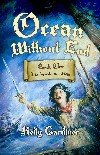The whalers

My great-great-great-great grandfather was a whaling captain. His name was Samuel Mott, and this is his cottage, which you can still see in Port Fairy, on Victoria's Great Ocean Road. It's a museum now - a very small museum.
Old Samuel wouldn't have approved of me when I protested against whaling outside Parliament House with my "Save the whales" badge on, many years ago.
Nobody needs whale products nowadays, so there's no reason to go on killing them.
But for centuries, whaling was one of the most important and lucrative maritime industries. Whale oil and blubber was used in lamps and soap, people ate whale meat, whale bones were used in women's corsets and combs, and ambergris (a fragrant resin found rarely inside a whale's head) was essential for perfume and incredibly valuable, as indeed it still is. A couple of months ago a boy walking his dog found a huge lump of ambergris on the beach, here in NZ, and now he's rich.
It was a hard life, as it was on any fishing boat. The crew sailed away from home for months, sometimes years, on relatively small ships. If a whale's spout was sighted ("There she blows!"), they struck out in small boats, rowing as hard as they could, often for miles, hoping to spear the whale with a harpoon.
Once speared, the whale might drag the boat under, or smash it to pieces, or tow it leagues away. Many whalers were lost at sea, or terribly injured. But they became the folk of legend: of Herman Melville's book Moby Dick.
You can read more about the history of sailing ships on the Swashbuckler website.



0 Comments:
Post a Comment
<< Home